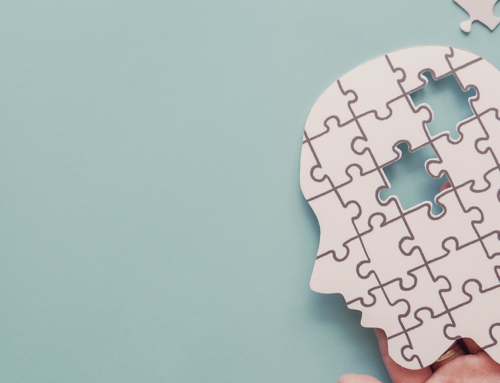With hearing implants against depression
Hearing loss can make a lasting impact on the quality of life and even trigger depression. Adequate hearing aids or hearing implants can help and counteract this. A recent study from the UK shows even a previously unknown economic correlation.

Quality of life is a multidimensional concept and involves physical, material, emotional and social well-being. Hearing problems can affect the social and emotional spheres through communication. According to one study from Italy from 2012, seniors with hearing impairment are generally more unsatisfied with their lives. The impact of hearing loss on information exchange can also affect income as a financial aspect of quality of life. For example, one study from 2010 showed that restoring hearing has a positive impact on income in many cases.
New findings from the ELSA (English Longitudinal Study of Ageing) add to the known facts. The analysis of the extensive data sample shows that economic situation of those affected also has a significant influence on the impact of hearing problems on the psyche.
All quality-of-life studies that investigated the effect of hearing solutions on quality of life have shown that within the first year after fitting, the quality of life has significantly improved.
Hearing difficulties, money problems and depression
Depression is a mental illness, that manifests itself as a constant low mood, brooding, hopelessness, and lethargy. Depression can be related to a single trigger, but it can also develop as an interaction of different neurobiological and psychosocial factors. These include traumas, hormonal fluctuations, or loneliness. Possible triggers are also experiences of loss, acute anxiety, economic worries etc.
It has been long known that hearing loss can be one of the factors in the development of depression. In one study from 2003, it is pointed out that “untreated hearing loss worsens quality of life in terms of isolation, reduced social contacts, […] and symptoms of depression.” Another study from a team of the University of Wisconsin-Madison cautioned against hearing loss as an inevitable side effect of aging: “The severity of hearing loss is related to the degree of reduction in quality of life.”
The scientists from the University of Manchester investigated the relationship between hearing impairment, depression, and economic situation. While hearing loss seems to pose little risk of depression in wealthy people, those with hearing problems and low income are twice as likely to develop depression as those with normal hearing. Since hearing aids can counteract this, the authors of the studies recommend appropriate hearing tests for early identification and intervention.
Quality of life and age
In recent decades, several extensive studies on the last stage of life have been initiated. They collect data from different areas of life in order to examine the various aspects of ageing.
Since 2002, ELSA in England has surveyed more than 18000 people older than 50, every two years. The points were their physical and mental health, general well-being, economic situation and their personal attitudes toward aging. The data are analyzed by different scientific groups in different ways. With the analysis of such data samples, it is possible to reveal even more surprising correlations.
Find out more: English Longitudinal Study of Aging, ELSA https://www.elsa-project.ac.uk.






